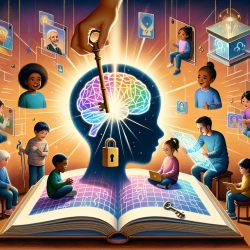Introduction
Autism Spectrum Disorder (ASD) is a complex condition with a highly heritable nature, yet its genetic underpinnings remain largely elusive. Recent research, however, has made significant strides in identifying candidate genes that may contribute to ASD. A novel study titled A novel approach of homozygous haplotype sharing identifies candidate genes in autism spectrum disorder offers groundbreaking insights that could transform how practitioners understand and approach ASD.
The Research Breakthrough
The study utilizes a strategy called homozygous haplotype (HH) mapping to detect shared genetic segments among individuals with ASD. By analyzing data from 1,402 Autism Genome Project trios, researchers identified 25 known and 1,218 novel candidate genes. This approach highlights the potential of HH mapping in identifying low-frequency recessive variants that contribute to ASD, offering a fresh perspective on the genetic architecture of this disorder.
Implications for Practitioners
For practitioners, understanding these genetic insights can enhance the effectiveness of interventions and therapies. Here are some practical ways to integrate these findings into your practice:
- Personalized Therapy: Utilize genetic information to tailor therapy approaches, focusing on individual needs and genetic profiles.
- Family Counseling: Educate families about the genetic aspects of ASD, providing them with a deeper understanding of their child's condition.
- Interdisciplinary Collaboration: Work with geneticists and researchers to stay updated on the latest findings and integrate them into therapeutic practices.
Encouraging Further Research
While this study offers significant insights, it also opens the door for further research. Practitioners are encouraged to engage in or support research initiatives that explore the genetic basis of ASD. This could involve participating in studies, collaborating with research institutions, or even conducting small-scale research within your practice.
Conclusion
The identification of novel candidate genes in ASD is a promising development that can enhance our understanding and treatment of the disorder. By integrating these insights into practice, practitioners can offer more personalized and effective support to individuals with ASD and their families.
To read the original research paper, please follow this link: A novel approach of homozygous haplotype sharing identifies candidate genes in autism spectrum disorder.










